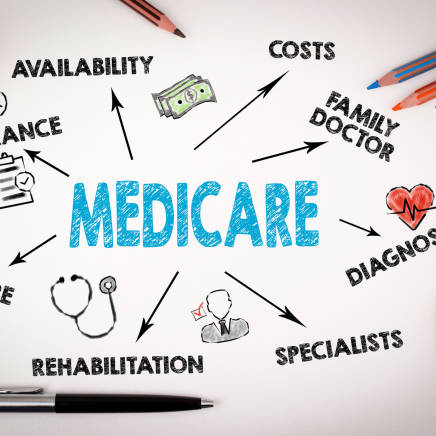Centers for Medicare & Medicaid Services (CMS) and the U.S. Department of Health and Human Services (HHS) launched a new model to improve cancer care for Medicare patients while cutting healthcare costs.
EOM Model
Enhancing Oncology Model (EOM) was created by the Center for Medicare and Medicaid Innovation (Innovation Center) to examine how healthcare providers can better deliver care centered on patients, consider the unique needs of patients, and provide cancer care in a way that results in the best possible outcomes for patients.
- Also Read: Divorce and Your Federal Pension—What Happens When You Split Assets and How It Could Affect Your TSP
- Also Read: What Happens to Your Federal Benefits After Divorce? Here’s the Lowdown
- Also Read: The Best FEHB Plans for 2025: Which One Fits Your Lifestyle and Budget the Best?
Everyone should have access to high-quality, coordinated cancer treatment, and no one should face this disease alone. We are responding to President Biden’s call to action to deploy every possible option to combat cancer by implementing this Innovation Center model for oncology treatment. Our goal is to ensure that everyone has equal access to this care and that cancer is eliminated as we know it.
The disparities in access to cancer screening, diagnoses, and treatment across race, gender, geography, and poverty are severe. CMS is helping Medicare cancer patients better traverse a difficult and often bewildering path to accomplish President Biden’s Cancer Moonshot goals.
High-Quality Treatments
With the help of the Enhancing Oncology Model (EOM), participating oncology practices will be rewarded for providing high-quality, coordinated treatment that meets patients’ social needs and improving patient and caregiver support in rural and under-served regions.
Based on lessons learned from the Innovation Center’s Oncology Care Model, EOM is a five-year optional model that will begin in July 2023 and end in June 2028. The model participants include oncology practices that serve Medicare patients undergoing chemotherapy for cancers such as lymphoma, chronic leukemia, breast cancer, lung cancer, multiple myeloma, prostate cancer, and small intestine/colorectal cancer.
Enhanced Services like the collection of electronic patient-reported outcomes (ePROs), patient navigation, care planning, and screening for social needs may affect treatment. Transportation issues and nutritional needs will be provided to support healthcare transformation by participating providers. EOM will urge other payers (such as commercial payers and state Medicaid agencies) to adopt its fundamental ideas to benefit all payers and the patients served by EOM participants.
Cancer Moonshot Initiative
The Cancer Moonshot Initiative’s primary objective is to serve patients better and enhance their healthcare experience, which is at the heart of EOM’s mission. Participating in oncology practices may offer enhanced patient-centered care services, such as 24-hour access to a clinician, patient navigation services, a thorough care plan, and screens for health-related social needs.
Sharing input on cancer care and health outcomes will also be an option for patients. EOM aims to improve patient-oncologist contact between visits and make it easier for patients who have questions to get in touch with the people who can help them.
Other design aspects in EOM support CMS’ commitment to improving health fairness and asking participants to screen for relevant socioeconomic needs, offering an extra payment to oncology clinics that provide Enhanced Services to patients who are both Medicare and Medicaid eligible.
Patients’ demographic data (e.g., race, ethnicity, language, gender identity) are required to be reported by participating providers. Health equity inequalities in the patient population must be addressed by participating providers by requiring them to establish strategies to do so.
New National Targets
Using the Cancer Moonshot as a springboard, President Biden has established new national targets to reduce the death toll from cancer by at least half over the next 25 years, enhance the quality of life for those dealing with or recovering from cancer, and ultimately put an end to cancer as we know it.
Earlier this month, HHS announced a five-year, $1.1 billion investment in three national cancer prevention and control initiatives that included $215 million in first-year cash awards. In May, the Health Resources and Services Administration (HRSA) announced that $5 million would be available for community health centers to expand access to life-saving cancer screenings.
Contact Information:
Email: [email protected]
Phone: 9568933225
Bio:
Rick Viader is a Federal Retirement Consultant that uses proven strategies to help federal employees achieve their financial goals and make sure they receive all the benefits they worked so hard to achieve.
In helping federal employees, Rick has seen the need to offer retirement plan coaching where Human Resources departments either could not or were not able to assist. For almost 14 years, Rick has specialized in using federal government benefits and retirement systems to maximize retirement incomes.
His goals are to guide federal employees to achieve their financial goals while maximizing their retirement incomes.











